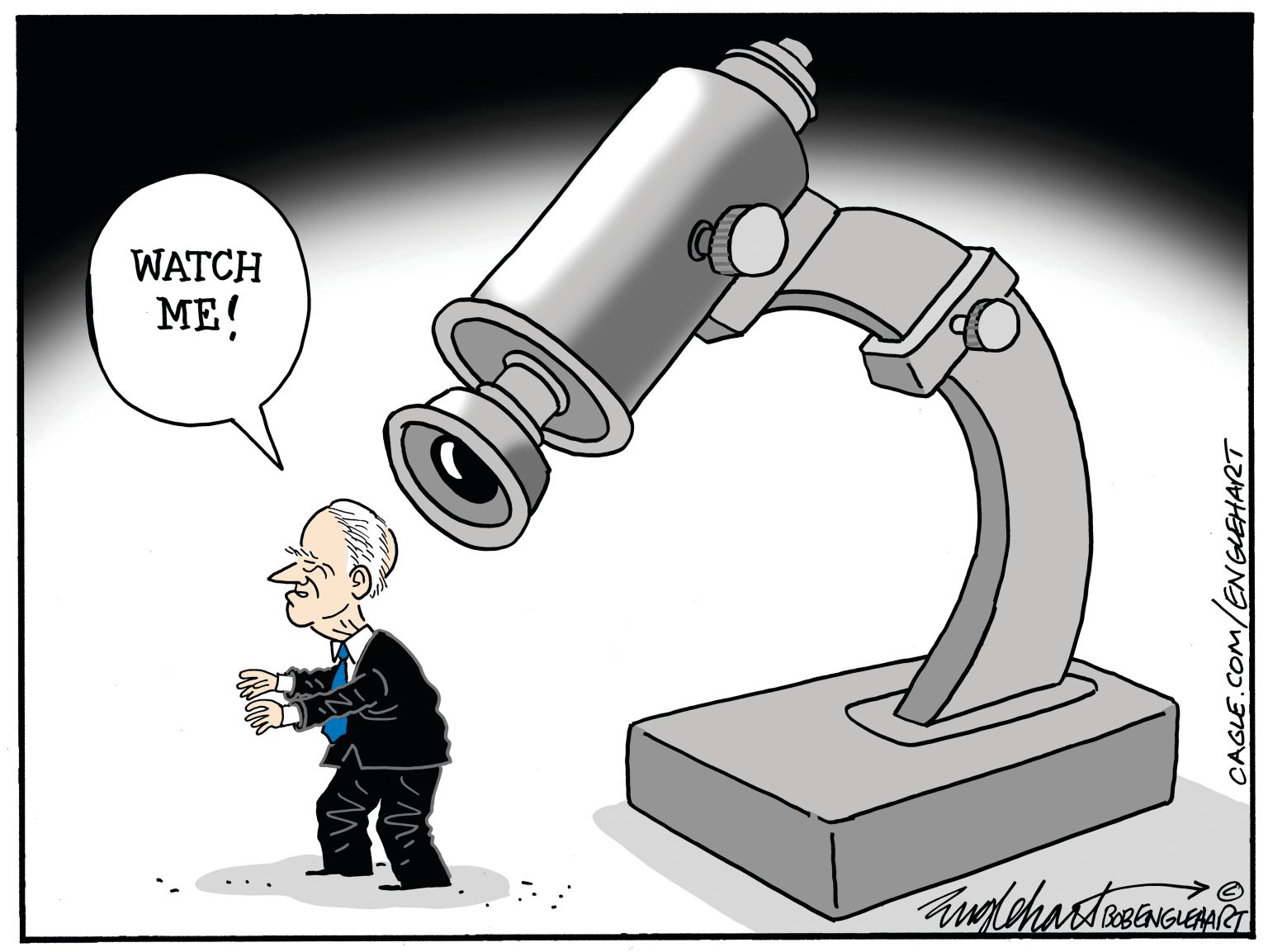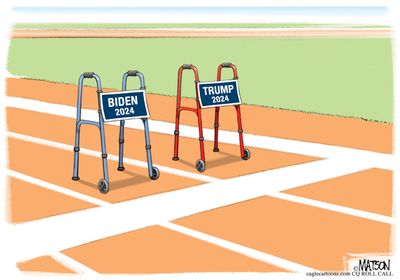With two-thirds of the country disapproving of the Biden administration’s handling of the economy and inflation and an equal ratio believing the nation is on the wrong track, the White House and campaign team have settled on a reboot strategy to change the frame of reference of the debate.
Rather than respond to partisan criticisms and popular discontent with inflation, rising mortgage interest rates and anemic growth, the administration has set out to convince Americans that steps it has taken are paying dividends in the quest for a robust economy and an affordable cost of living.
It smacks of a make lemonade out of lemons strategy after a rising number of Americans have confessed they’ve been forced into living paycheck to paycheck and turning to credit cards to cover expenses.
The shift in strategy is an acknowledgment that inflation and economic distress can’t be ignored or supplanted by other issues and that a major public relations offensive is crucial to at least neutralize it as the turning point in the 2024 election.
The magnitude of the task is easily seen in the brutal polling results: On handling the economy, the president is down 38-57; on inflation, he’s on the wrong side 31-63, and on the nation’s direction, he fails by an astounding 22-66. His overall approval rating remains mired in the low 40 percent range.
The president’s team settled on the term “Bidenomics” as its initial step in re-framing the debate parameters and concentrating on the administration’s legislative accomplishments as proof that he’s turned the ship into calmer waters.
They cite passage of the American Rescue Plan, the Infrastructure Investment Act, the Buy American Act and the Inflation Reduction Act as significant, if not historic, anti-inflation and economic growth steps.
A clever and catchy one word description is helpful in drawing attention, but “Bidenomics” is neither one. In fact, it is somewhat counterproductive in that combining his name with economics ties him directly to the angst and unease prevalent in the country.
Republicans have rebutted each of the administration’s claims, accusing it of highly selective and misleading use of economic data and outright falsehoods in claiming credit for deficit reduction and job creation.
The impact of the legislation cited by the president – while significant – was, for the most part, not immediate and likely will not be fully felt by the broader national electorate for many months. It is a policy and public relations hill that must be scaled.
Each visit to the service station gasoline pump or the grocery store or the auto dealer is an immediate and disconcerting reminder of inexorably rising costs. Against that consumer experience, the christening of a new bridge constructed over a river somewhere in Kentucky under the infrastructure act is hardly a compelling argument.
To be sure, there will be other issues impacting the political and campaign landscape leading to November of 2024 – abortion rights, immigration reform, rising crime, student loan forgiveness, the ongoing media attention to the business activities of the president’s son, to name a few.
Added to the environment will be the continued attention to Biden’s age as well as his physical stamina and mental agility. Should former president Donald Trump secure the Republican nomination – a contest in which he continues to lead – the campaign will be spiced by the unprecedented question of whether voters feel indictments are a disqualifying trait.
The president’s team has put “Bidenomics” in play, though, and it will continue in a dominant place as the campaigns gather momentum.
The jury is out on its viability and a final verdict won’t be returned for more than a year. Any cooling of inflation, a decline in interest rates or an easing of the cost of living will be heralded by the administration as evidence of strong leadership which should be rewarded by the voters just as continued stagnation will be punished.
–
Copyright 2023 Carl Golden, distributed exclusively by Cagle Cartoons newspaper syndicate.
Carl Golden is a senior contributing analyst with the William J. Hughes Center for Public Policy at Stockton University in New Jersey. You can reach him at cgolden1937@gmail.





